In Islam, there is ongoing discussion about whether seafood on your plate is Halal (permissible) or Haram (not permissible) to be eaten. Scholars reference the Qur’an, particularly verse 5:96, to make this determination. Many believe that most seafood is halal. However, the Hanafi school of thought asserts that only certain types, such as fish, are halal. They do not consider hagfish and clingfish permissible. The status of shrimp, prawns, and crabs is still under deliberation.

I have researched this extensively. This part of the article is intriguing as it demonstrates how Muslims determine which foods are halal.
This section serves as an educational tool, helping people understand these fundamental facts. It’s a valuable guide for Muslims to know what seafood they can consume. It outlines the main points of this debate.
What The Quran on Seafood?
Halal food, permitted by Islamic dietary laws, is not solely about ritualistic practices but also encloses ethics, hygiene, and spirituality.
Allah Almighty provides guidance in the Holy Qur’an with the following verses:
“O mankind, eat from whatever is on earth [that is] lawful and good…” [Quran 2:168]
This verse emphasizes the importance of consuming what is both lawful and wholesome. Islamic scholars have derived guidelines from the Quran and Hadith to create a systematic approach to halal food consumption. Allah also states:
“Lawful to you is game from the sea and its food as provision for you and the travelers…” [Quran 5:96]
The Quran further commands:
“Eat not (O believers) of that (meat) on which Allah’s Name has not been pronounced…” [Quran 6:121]
There are certain items are explicitly declared not halal by Allah, including certain dead animals, blood, and the flesh of swine:
“He has only forbidden to you dead animals, blood, the flesh of swine, and that which has been dedicated to other than Allah” [Quran 2:173]
The wisdom behind these prohibitions is vast, covering health concerns about blood purity in animals, ethical treatment of animals, and spiritual purity. This enables a holistic approach to dietary habits, containing both physical and spiritual well-being.
Are all types of Fish Halal?
By following the above, Islamic law or Sharia has specific guidelines on which types of dead meat are considered halal or haram. Dead fish may fall into these categories, with interpretations varying among different schools of thought.
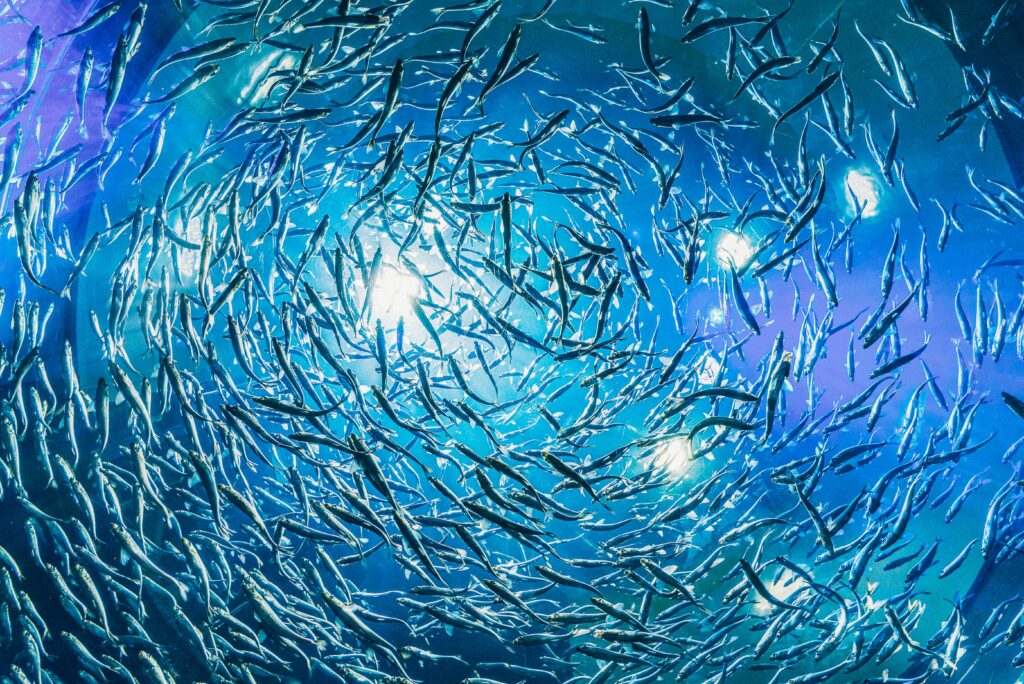
The Hanafi school of thought and Hanafi scholars generally consider fish with scales to be halal, even if found dead in the sea, though opinions differ on fish without scales. The consideration of natural causes and the ethical treatment of aquatic creatures is crucial. Fish farms may help ensure that dead fish meet halal standards.
Is salmon halal?
Salmon is halal, according to most Islamic scholars and aligns with Islamic dietary laws. Here’s why:
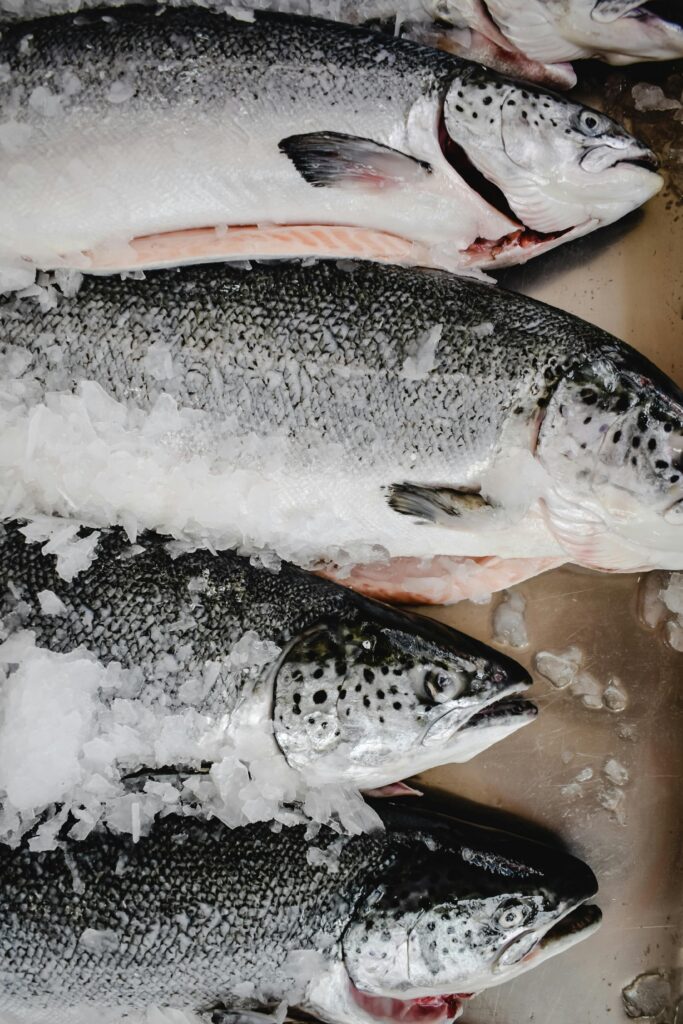
- Halal Status: Salmon meets the criteria for halal seafood. It has scales that are easily identified; therefore, it is Halal (permissible) for Muslims to consume.
- Islamic References: The Quran permits seawater fish, including salmon, for consumption [Quran 5:96]. This verse states that water game is lawful as provision for settled and traveling Muslims.
- Certification: Organizations like JAKIM and ESMA officially approve salmon as halal.
Remember to ensure proper handling and preparation to maintain its halal status.
Is catfish halal?
Catfish is halal, according to most Islamic scholars. Let’s explore the different perspectives:
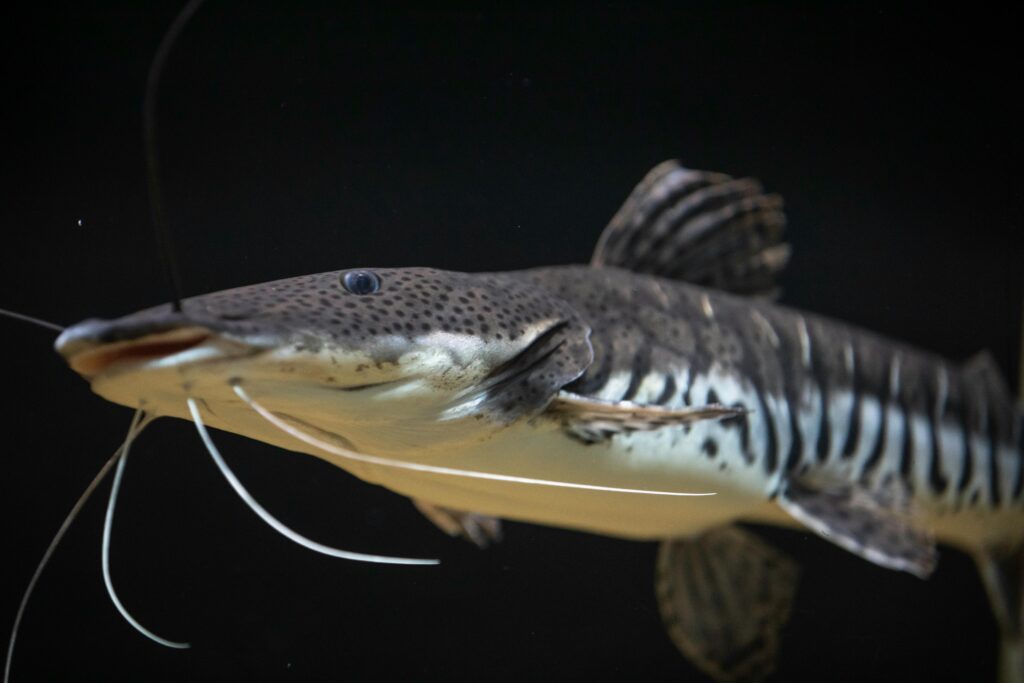
- Shafi’i, Maliki, and Hanbali: These schools consider all sea creatures halal, including catfish.
- Hanafi: More restrictive, but many Hanafi scholars permit catfish due to its fish-like characteristics despite lacking traditional scales.
- Shia Perspective: In Shia Islam, fish without scales (including catfish) is generally considered haram.
Is eel halal?
Eel (unagi) is considered halal in Islam. Since it lives in water, Muslims can consume it as seafood. However, when preparing an eel for eating, it’s essential to follow Islamic rules carefully. ensure proper cooking and add only halal ingredients.
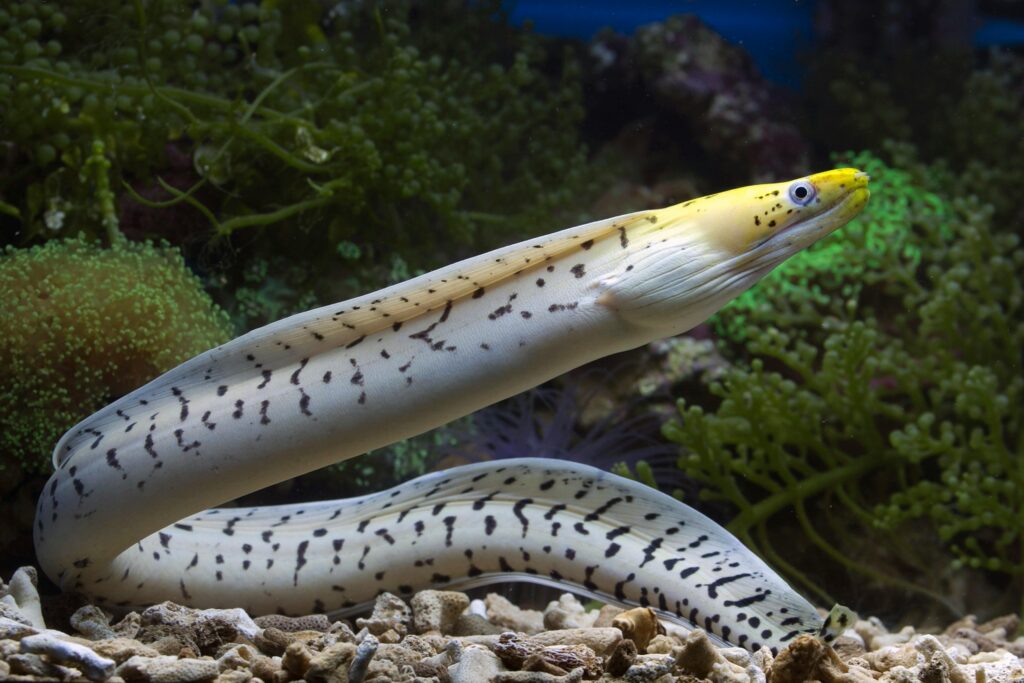
While most eels are permissible, it’s crucial to avoid any species known to be poisonous or harmful to health.
Is lobster halal or haram?
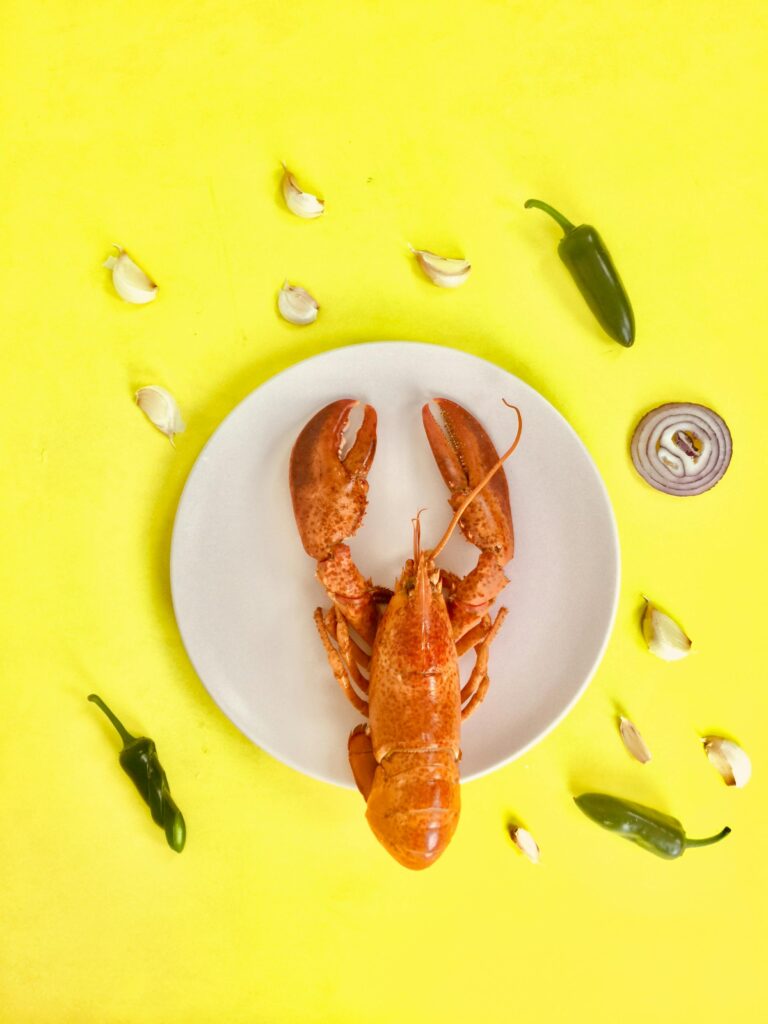
Lobster is halal in Islam. Although it falls under the category of shellfish, it is fully permissible for consumption. Only if they are killed in accordance with Islamic dietary guidelines, as like all other crustaceans, it is proven that lobsters can feel pain.
So, feel free to enjoy lobster it’s not only permissible but also offers health benefits!
Is Crab halal or haram?
Crab is partially halal according to Islamic jurisprudence. Different schools of thought have varying opinions:
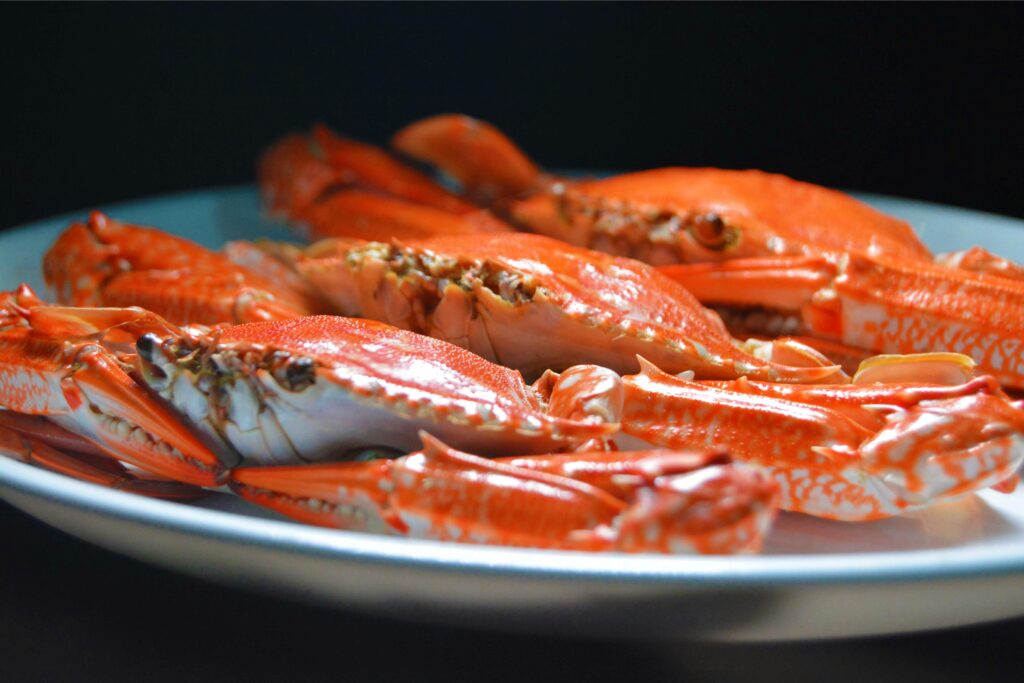
- Maliki Scholars: They consider crab meat permissible because there is no explicit prohibition in the Quran or hadith.
- Hanbali Scholars: They also deem crabs halal.
- Hanafi and Shafi’i Scholars: They restrict halal aquatic consumption to fish only, excluding other animals like crabs.
While opinions differ, most scholars agree that crabs are safe to eat when correctly prepared, free from torture, and not toxic or harmful to health.
Is Octopus or Calamari halal or haram?
Most Islamic scholars consider octopus halal. They base this on the general permissibility of consuming marine animals. While some see them as halal, others, particularly the Hanafi scholars, might consider them impermissible or at the very least, makruh (disliked).
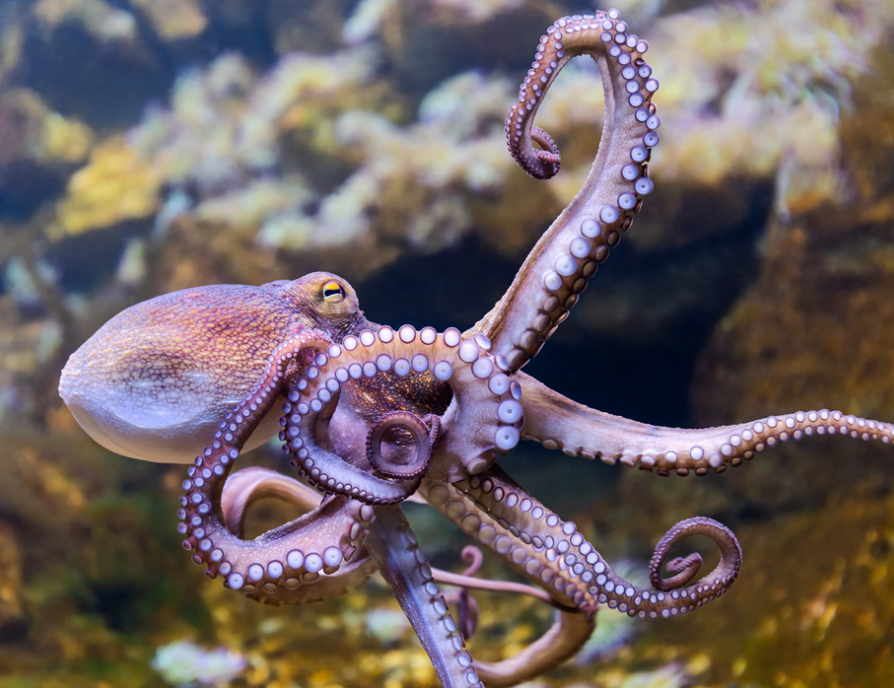
Calamari is also considered halal by most scholars. Calamari is the Italian name for “squid” and is generally battered and deep-fried. It is considered halal since squid also lacks scales and is from the sea.
Is Whale or Shark halal or haram?
Whale meat is considered halal and permissible in Islam. All major schools of thought, including Hanafi scholars, agree on this. The Quranic verse from Surah al-Ma’ida (5:96) declares the permissibility of seafood, including fish, which encompasses sharks.
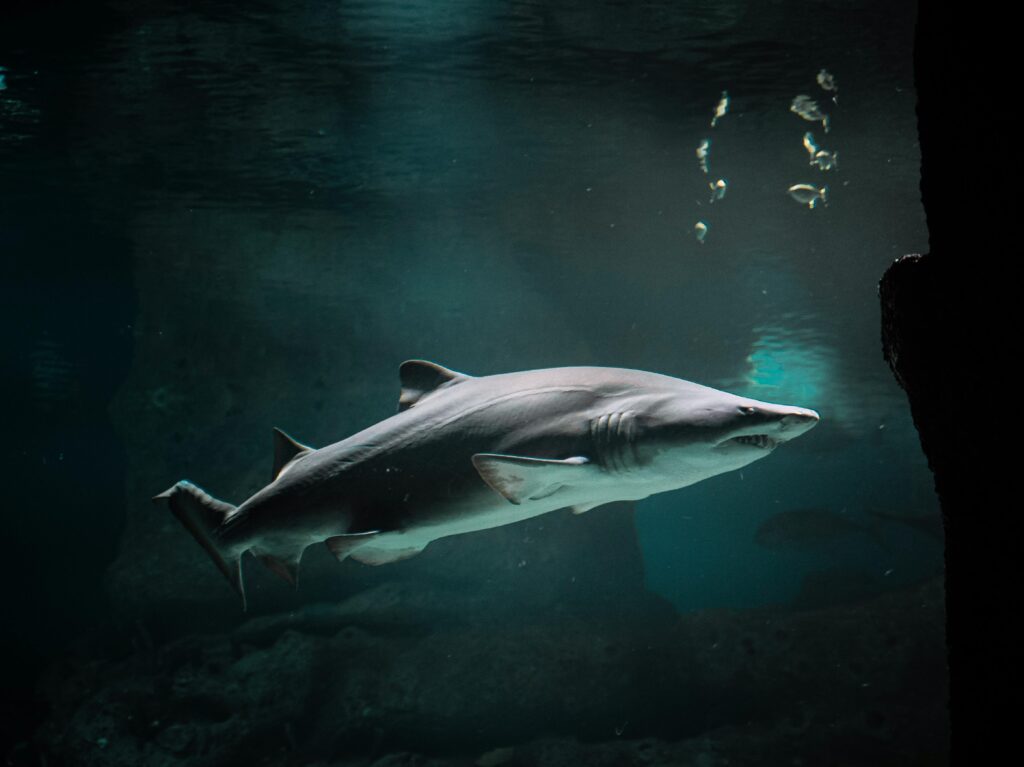
The permissibility of shark meat is a topic of debate among scholars. Some view it as halal because it falls under the category of fish, while others raise concerns due to its predatory behavior. Considering ethical consumption aligns with the Islamic emphasis on stewardship and responsible choices.
Is Tuna halal or haram?
There are numerous types of tuna, such as skipjack, bluefin, bigeye, and yellowfin. Generally, tuna is regarded as halal since it does not meet the criteria that would classify it as haram seafood.

However, some Shia scholars contend that dog-tooth tuna is not permissible, though this perspective appears to be in the minority.
Is Shrimph or Prawn halal or haram?
The Hanafi school tends to be more restrictive regarding shellfish. For example, crab cakes may be considered haram. However, despite shrimp and prawns being bottom dwellers that consume waste from other animals or plants, they are widely regarded as halal because they come from the sea, which Allah has permitted.

In contrast, Imam Malik and Imam Ahmad’s schools generally allow the consumption of shellfish, considering most aquatic animals as permissible sea creatures.
Are Oysters halal or haram?
Oysters have differing views on Islamic jurisprudence:
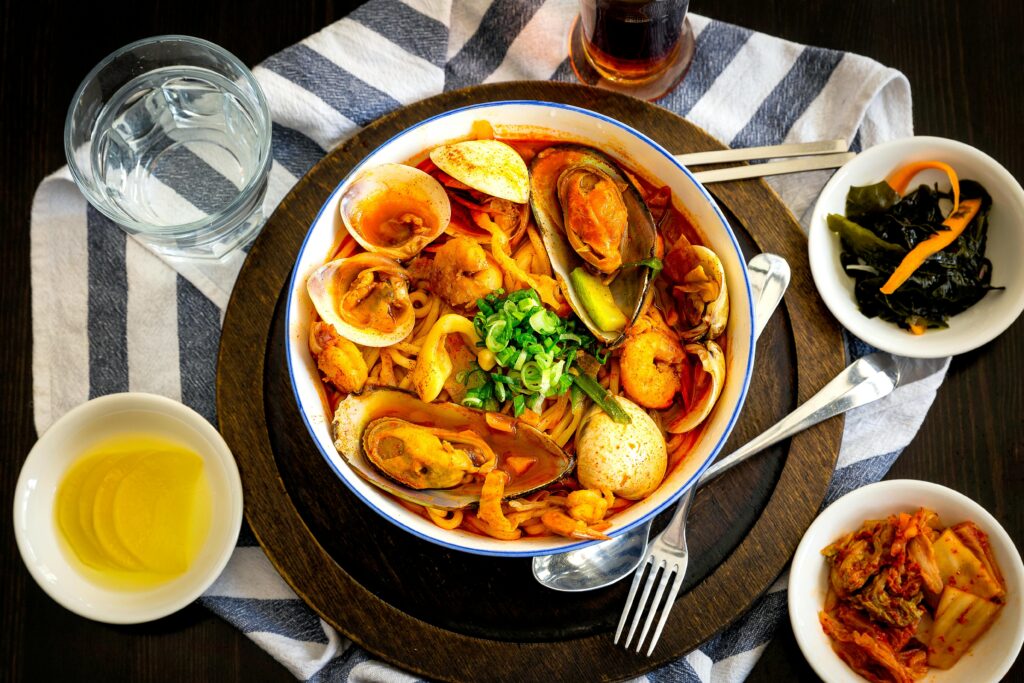
- according to the Hanafi school of thought, oysters are not classified as fish, making them haram to consume
- However, the general consensus among Islamic scholars is that oysters are permissible halal as long as they come from clean and uncontaminated waters. In practice, opinions vary, but many consider oysters halal.
Other halal or haram Sea-dwelling animals
Its categorization as a land animal with predatory characteristics usually places it outside of halal diet considerations.
Unique sea creatures require careful examination of Islamic dietary laws, sometimes leading to different types of seafood being categorized differently.
- The majority of Islamic scholars consider crocodiles to be haram
- The killing of frogs and their consumption is generally considered haram.
The diversity of opinions on various seafood items such as dead fish, sushi, whale, shark, shellfish, squid, octopus, crocodile, and sea frogs emphasizes the richness and adaptability of Islamic dietary laws and guidelines. Adhering to local scholars, seeking halal certification, and considering ethics, the environment, and personal health are the best ways to navigate this complexity.
Conclusion
In conclusion, most seafood is considered halal according to Islamic dietary guidelines. This includes various types of fish like tuna, salmon, and cod, which are commonly consumed without concern. Shellfish, such as shrimp and lobster, are generally accepted as halal by most scholars, though some hold different views.
It is important to follow your specific school of thought and consult knowledgeable sources if unsure. Overall, seafood plays a significant role in halal diets, and with a few exceptions, it is widely accepted as permissible for Muslims to eat.
FAQs
Which seafood is haram in Islam?
The Muslim community’s differing perspectives on seafood demonstrate the wide range of beliefs and customs. Although the majority of people concur that fish with scales are acceptable, the diverse viewpoints regarding crustaceans highlight how complex Islamic law is. In the end, this variety promotes a dynamic and developing comprehension of Haram and Halal in relation to food decisions.
Can Muslims eat crab?
Yes, Muslims can eat Crab.
Can Muslims eat prawns?
Yes, Muslims can eat Prawns.
